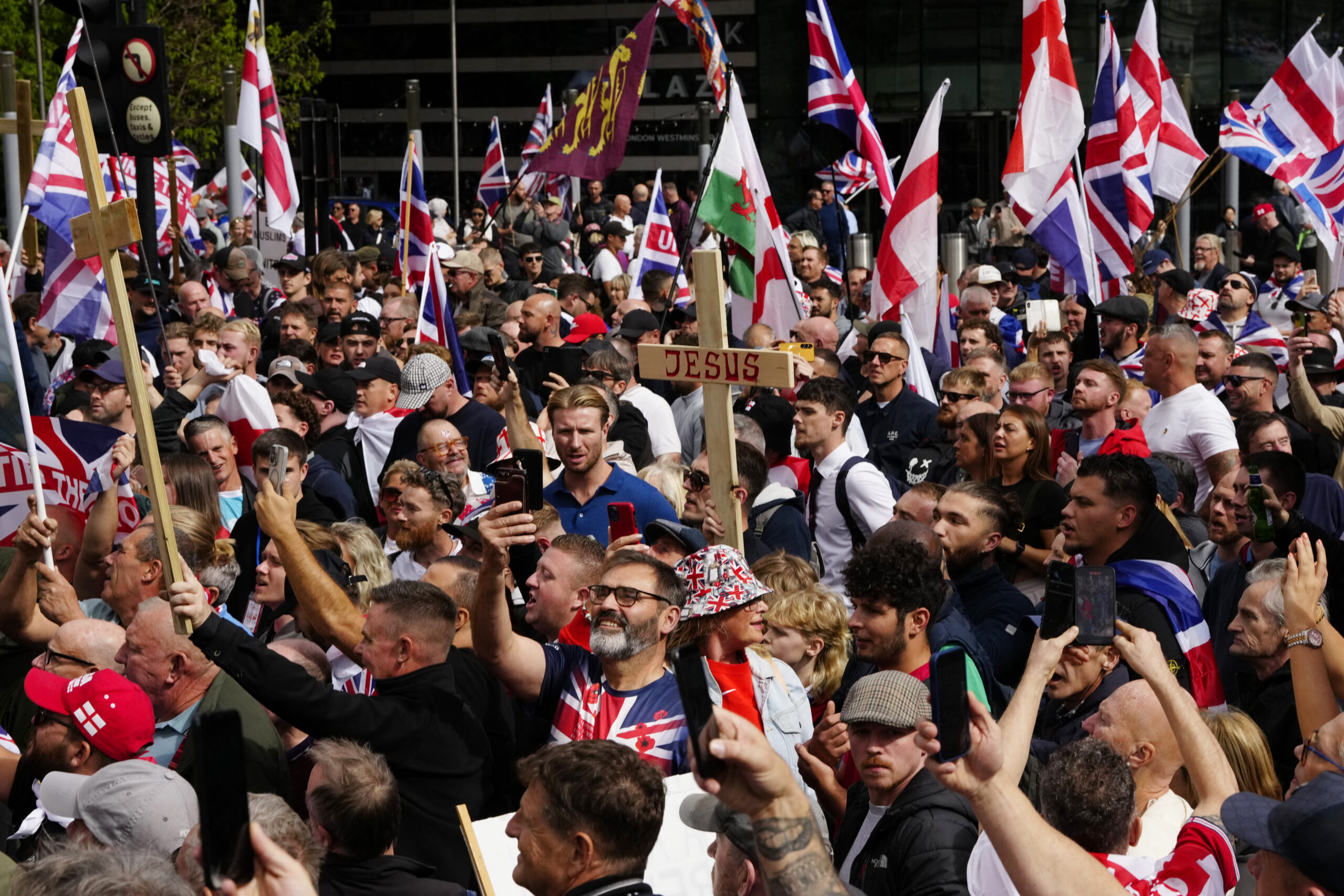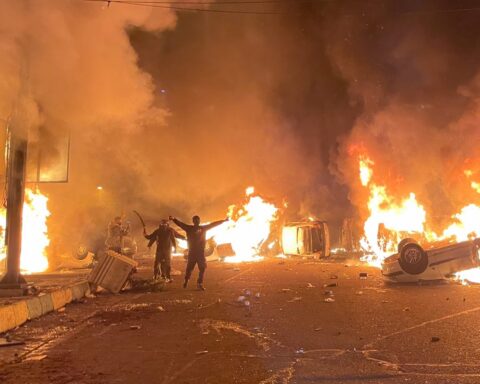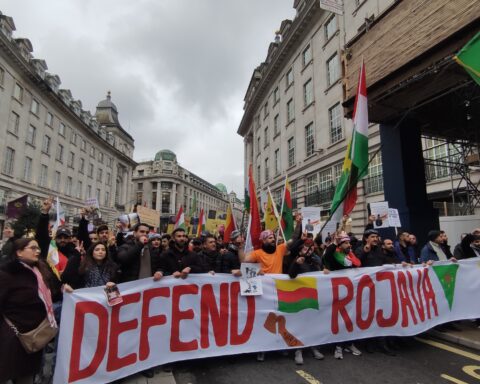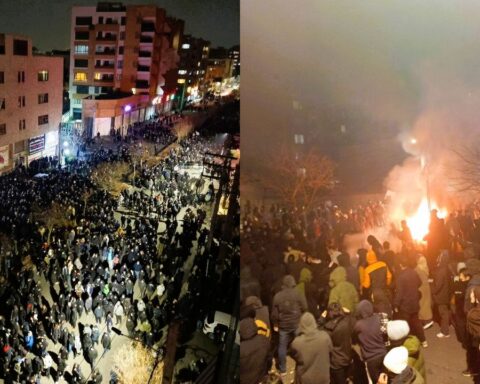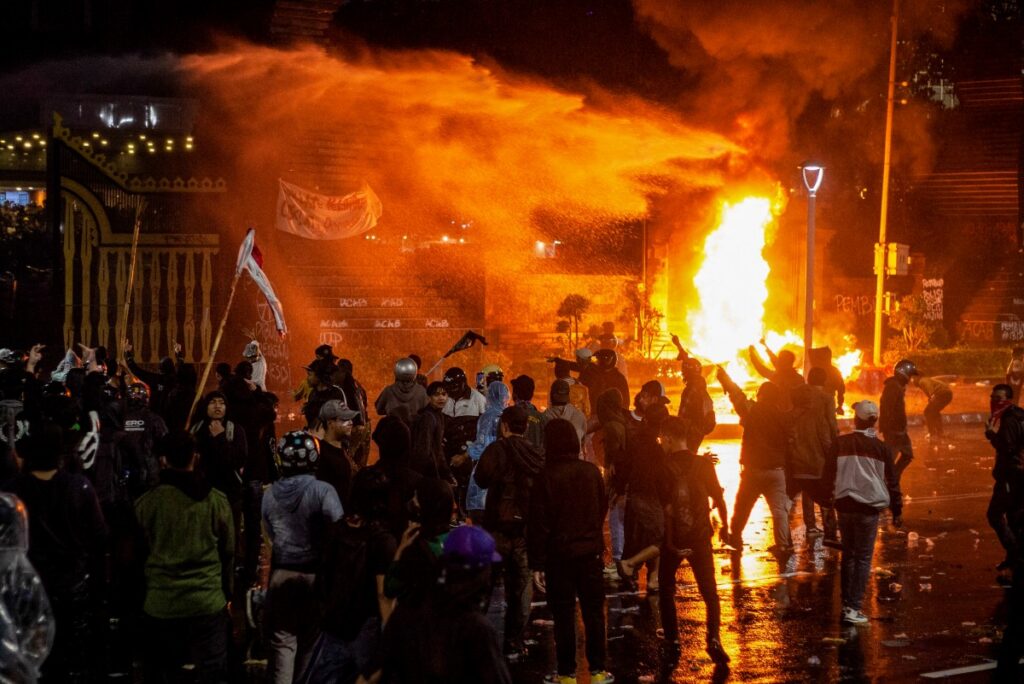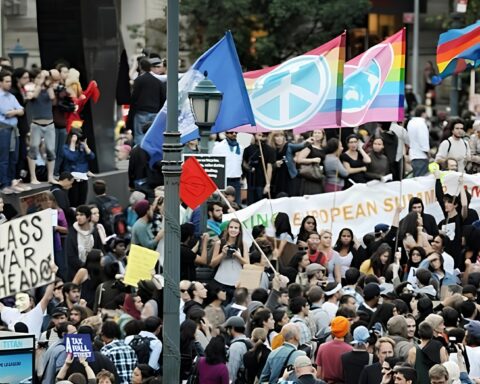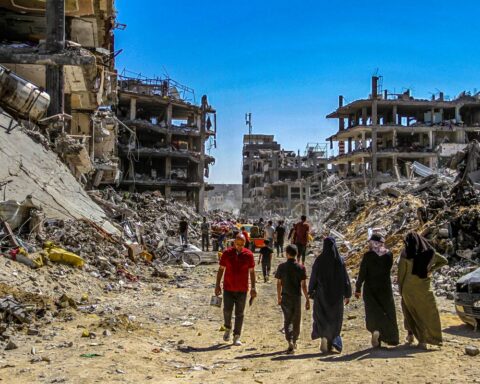What we build now may determine what survives the wreckage.
Written by Blade Runner
On Saturday 13 September, more than 110,000 people turned out in central London, travelling from across the UK, in a mobilisation framed as a defence of “free speech” but saturated with white nationalist, Islamophobic, and anti-migrant rhetoric. It is said to have been the largest far-right protest in history.
The social media influencer who called the mobilisation, Tommy Robinson, was joined by international supporters: Elon Musk appeared by video link, calling for the government to be removed and parliament dissolved, while Éric Zemmour, the French far-right politician, invoked the “great replacement” myth in openly Islamophobic terms.
Saturday’s counter-protest drew up to 20,000 people, organised by local trade unions and grassroots groups. After a rally, they marched and ended up behind the far-right stage, where they were surrounded and effectively kettled for hours, with hostile crowds pressing against police lines. A small black bloc was at one point trapped behind far-right lines before withdrawing to the left bloc. Beer bottles and other projectiles were thrown at both police and anti-fascists.
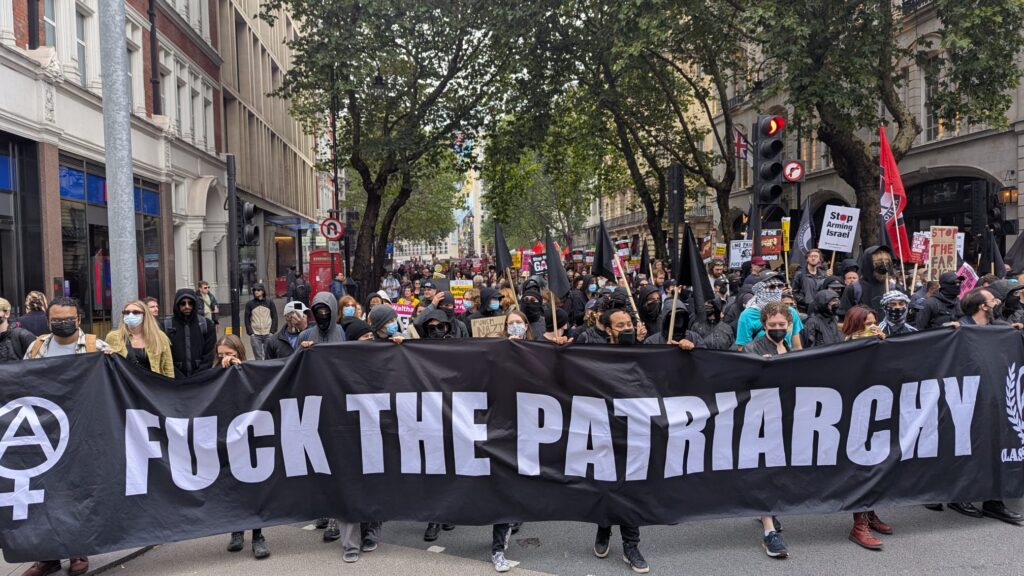
The sheer scale of the crowds overwhelmed the under-resourced police force, which had otherwise been fully prepared to arrest hundreds of supporters of the proscribed Palestine Action. By the end of the day, the Met reported 26 officers injured—four seriously—and at least 25 arrests for assault and violent disorder, mostly of far-right attendees attempting to break through cordons. Anti-fascist blocs were eventually escorted out through narrow corridors in the middle of hostile crowds.
This mobilisation followed a summer of racist outrage, coordinated online, amplified particularly by Labour politicians, and legitimised by media coverage. Already in June, London had hosted a mass rally under the “Football Lads Against Grooming Gangs / For Our Children” banner—another openly racist march where a small anti-fascist bloc was kettled “for its own protection.”
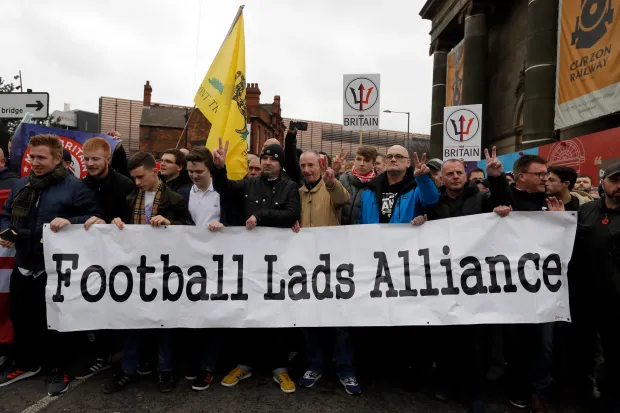
Unlike previous eruptions in Britain, today’s racist outrage is consistently organised. Protests are rapidly mobilised, digitally coordinated, openly backed by political forces and legitimised by mainstream media, who push the myth of a “migrant invasion threatening a decaying country.”
This is part of a broader domestic and international counterinsurgency embedding the far right within Western societies. Fascists present themselves as defenders of working-class communities, co-opting the language and aesthetics of protest, all in service of white supremacy. Clashes with police are disciplinary theatre—reinforcing state power, not challenging it.
Anarchists and the anti-authoritarian left often appear disconnected from local communities, with little presence in the neighbourhoods or direct connections to refugees. We arrive as outsiders, sometimes facing kettling, harassment, and arrests.
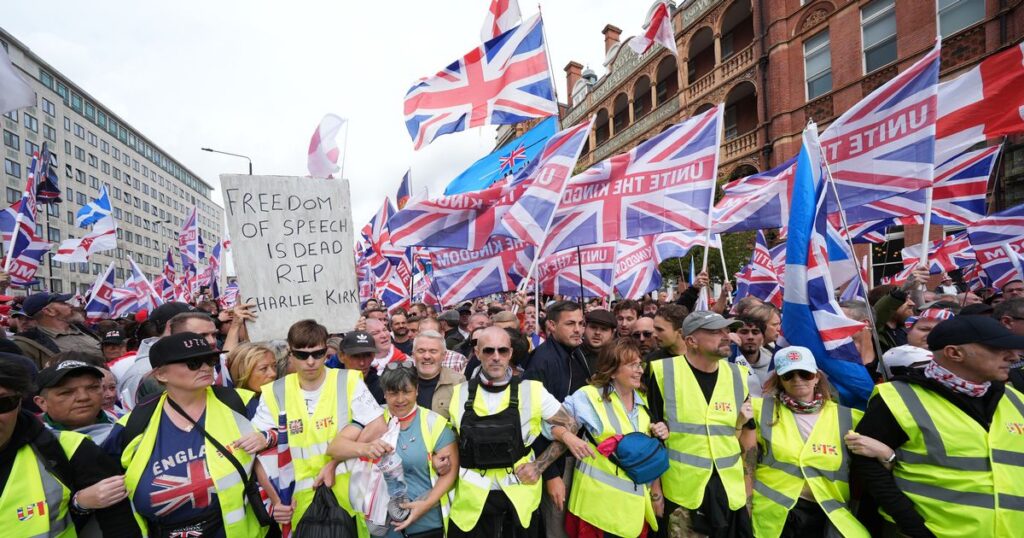
Mainstream accounts frame the far-right surge as a backlash to left failures—neoliberal betrayal, cultural elitism, identity politics “gone too far.” But this obscures the deeper truth: Western societies long ago abandoned ideological politics, and whatever radicalism remained was absorbed and neutralised by social-democratic parties acting as pressure valves. Today’s political irrelevance is the result of decades of co-option and betrayal.
The gap between consumerist comfort zones and excluded populations has become an unbridgeable chasm. Digital natives grow up immersed in a technologically curated reality. Inside the citadel of the wealthy Global North, most can meet their basic material needs, while outside survival itself is precarious. Yet on both sides of the wall, the capacity to imagine life beyond the dominant narrative is vanishing.

The new middle classes function as highly specialised technicians and computer operators in a fully automated dystopia that extracts and destroys at unprecedented levels. Those who fail to adapt are rendered expendable. Genocide and ecocide advance hand in hand—perhaps the bleakest picture humanity has painted in civilisation’s history. Both the left and the right struggle to confront this reality in its full scale.
Governments steer reactionary domestic fronts—claiming to counter far-right drift while pushing anti-migrant policies. Repression is intense, with AI-driven surveillance defining a new society of control and feeding into a global shift toward a de facto wartime economy driven by the military–industrial complex. Militarised, racialised social orders prepare for war abroad and repression at home.
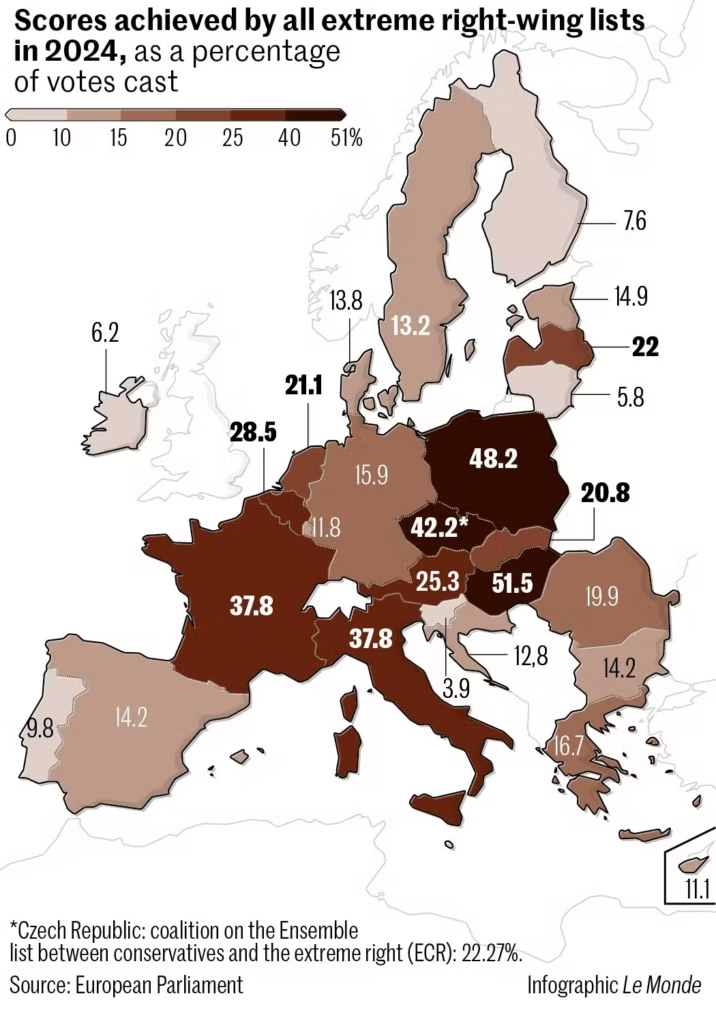
The far-right resurgence in the UK mirrors trends across Europe and the US. It is fuelled by wealthy donors and business interests, unfolding amid post-colonial restructuring. Nationalist militarism is global capitalism’s go-to strategy for managing its own contradictions, demanding a compliant, racist, and surveilled population in exchange for hollow “security” and “sovereignty.” War restructures society through displacement and discipline, always along racial lines.
New migration waves toward the citadels will continue, driven by deepening inequality, war, and ecological collapse. Migrants will remain scapegoats for crises they did not cause.
In the Middle East, this scapegoating turns genocidal. Palestinians—once a key source of precarious labour in Israel—have been rendered surplus. Racism so dehumanising it treats them as disease-carriers underpins the ongoing offensive: erasure of an indigenous population to consolidate a Greater Israel aligned with US interests and settler-colonial permanence.
The same logic that obliterates Gaza demonises migrants in Britain, criminalises dissent, and elevates white nationalism. Racism and xenophobia justify both foreign aggression and domestic repression. Liberalism cloaks this in the language of rights—but its function remains control. The UK’s Public Order Act 2023 claims to preserve safety and democracy while criminalising protest and expanding police powers, wrapping repression in procedural fairness.
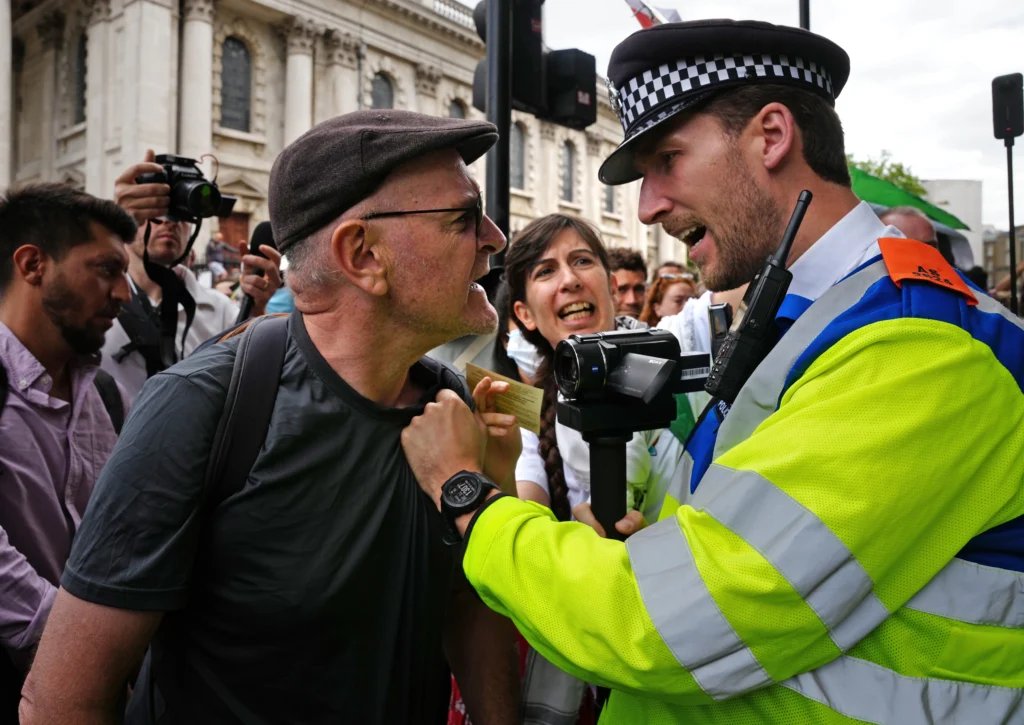
The left, meanwhile, clings to illuminated vanguardism and backs authoritarian regimes simply because they oppose the West. Reviving the ideological zombies of Marxist orthodoxy and party-line praxis will not get us out of this nightmare. The revolts of this century were announced as joyful majority movements grounded in the lives and resistance of the displaced, exploited, and exiled. Building trust in our communities means abandoning the ideological habits that isolate us and reduce us to joyless, miserable lifestyle cults.
Palestine, climate, migration—these are not separate struggles. Internationalist solidarity must stretch across all fronts. Our enemies are not only abstract “isms” or tanks and cops, but also patriarchy, borders, data centres, and propaganda systems—left and right—that sustain the global war economy.
As global restructuring accelerates, the left–right binary fades. Direct action beyond ideology and party politics gains traction among a new generation. We must revive revolutionary imagination and resist the cynical pessimism of rigid orthodoxy.
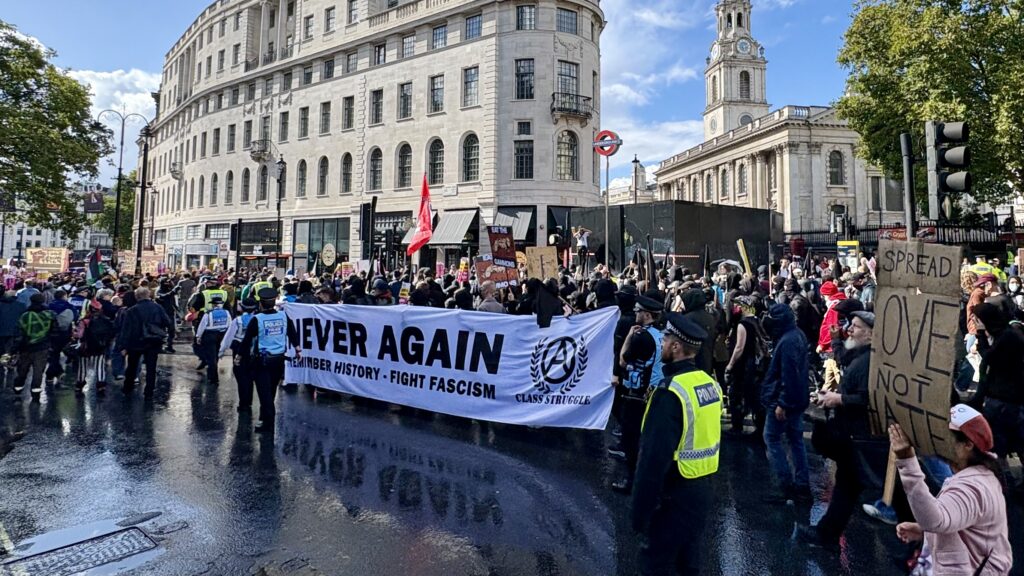
We don’t need to reinvent the wheel—but we do need to joyfully rise to the occasion. Grassroots counter-information and deep community engagement remain as relevant as ever.
And we must have honest conversations with our leftist friends and allies: there hasn’t been a single uprising in history that left leaders didn’t betray. Disappointment will follow hollow promises for a “better” party.
The spectre of revolt from the past decades still haunts the elites and this reactionary wave is their effort to stop it from taking form again. Our task is to crush the snake eggs before they hatch—to build bonds of trust, create spaces of refusal, and confront not just fascism but the system that breeds it. What it fears most is our capacity to live ungovernable.
